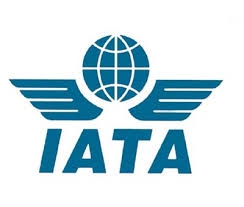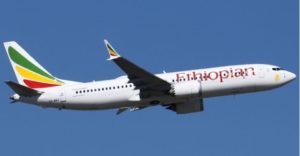Historic Agreement on Carbon-Neutral Growth:IATA

Cape Town – The International Air Transport Association (IATA) 69th Annual General Meeting (AGM) overwhelmingly endorsed a resolution on “Implementation of the Aviation Carbon-Neutral Growth (CNG2020) Strategy .”
The resolution provides governments with a set of principles on how governments could: Establish procedures for a single market-based measure (MBM) and Integrate a single MBM as part of an overall package of measures to achieve CNG2020
“Airlines are committed to working with governments to build a solid platform for the future sustainable development of aviation. Today, they have come together to recommend to governments the adoption of a single MBM for aviation and provide suggestions on how it might be applied to individual carriers. Now the ball is in the court of governments. We will be strongly supporting their leadership as they seek a global agreement through the International Civil Aviation Organization (ICAO) at its Assembly later this year,” said Tony Tyler, IATA’s Director General and CEO.
Environment will be at the top of the agenda for the 38th ICAO Assembly in September. The aviation industry urgently needs governments to agree, through ICAO, a global approach to managing aviation’s carbon emissions, including a single global MBM. IATA member airlines agreed that a single mandatory carbon offsetting scheme would be the simplest and most effective option for an MBM.
Aviation is the first industry to suggest a global approach to the application of a single MBM to manage its climate change impact. This keeps aviation in the forefront of industries on managing carbon emissions. It was also the first to agree global targets. These are: improving fuel efficiency by 1.5% annually to 2020, capping net emissions with CNG2020, and cutting emissions in half by 2050 compared to 2005. And it was also the first to agree on a global strategy to achieve them.
An MBM should be designed to deliver real emissions reductions, not revenue generation for governments. The principles agreed apply to emissions growth post-2020. “Airlines are delivering results against their climate change commitments. For example, we are on track to achieve our 1.5% average annual fuel efficiency target. We need governments to be serious partners as well. Developing an MBM must not become an excuse for revenue generation by cash-strapped governments, or for avoiding incentivizing investments in new technologies and sustainable low-carbon alternative fuels,” said Tyler.
Likewise, The IATA AGM unanimously endorsed a set of core principles for governments to consider when adopting consumer protection regulation.
The IATA AGM resolution (pdf) addresses a proliferation of uncoordinated and extra-territorial passenger rights legislation and regulation that is the cause of confusion among passengers. Some 50 countries have passenger rights requirements affecting air transport and several more are considering imposing them.
The IATA reaffirmed its support for the New Distribution Capability (NDC) initiative. This will develop an open, XML-based distribution standard for data exchange between airlines and travel agents.
In a unanimously approved AGM Resolution , IATA members agreed that, “consumers will benefit from being able to make choices based on enriched content and the ability to compare and transact airline offers in a transparent fashion.”
The AGM is attended by some 700 aviation leaders representing IATA’s 240 member airlines, their partners and stakeholders.
For more information: Corporate Communications AGM Media Center , Email: corpcomms@iata.org















